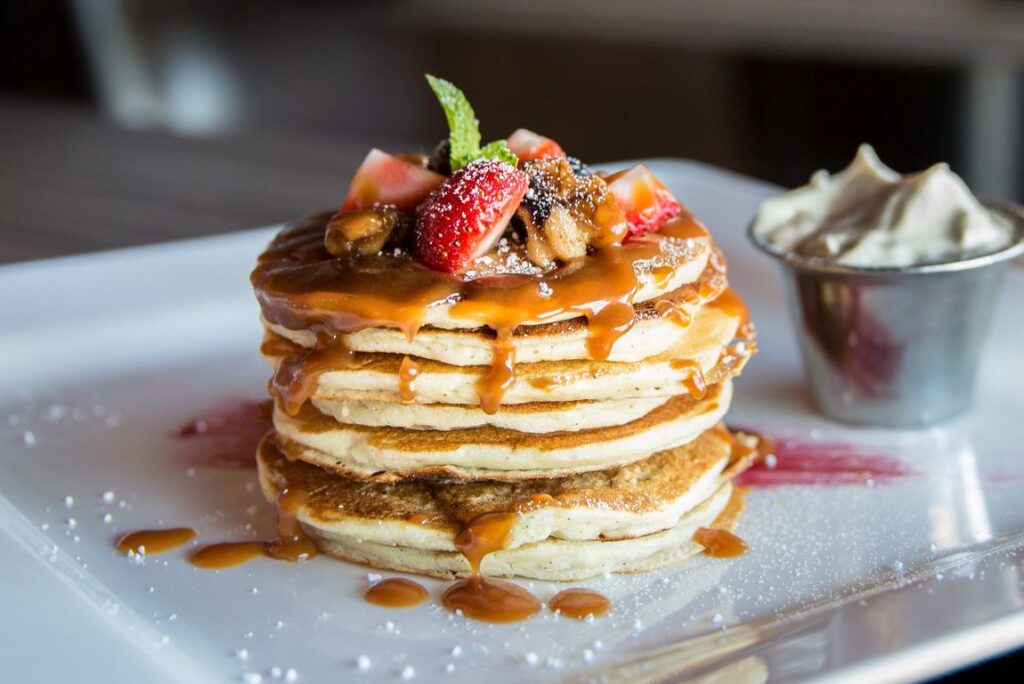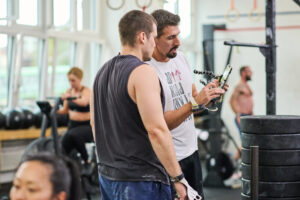
In our last blog post, we answered the common question: “Can you out-train a bad diet?” (Spoiler: no.) But that’s not the end of the story. There’s another side to the conversation—and it’s good news. Can a fit body handle a bad diet? Yes, it can. If your usual habits are strong, your nutrition is mostly solid, and you move your body regularly, occasional indulgences are not only manageable—they can even be beneficial.
Can a fit body handle a bad diet? It often can—and here’s why
Muscle mass and daily activity give your body a major edge. A fit body handles calories better, processes glucose more efficiently, and recovers faster from stress—including dietary stress. If you’ve built muscle through resistance training and support it with enough food and rest, your body becomes more resilient to the occasional pizza night, holiday indulgence, or spur-of-the-moment dessert.
In fact, sometimes those meals act as a boost. After a period of intense training, an extra shot of calories—yes, even from less-than-perfect food—can help replenish energy stores and accelerate recovery. Your body can put those calories to good use. The mental break doesn’t hurt either.
Even psychologically, flexibility matters. If your eating habits are so rigid that a slice of cake causes guilt or anxiety, you’re likely creating more stress than benefit. Being able to relax around food occasionally is a sign of a sustainable, mature approach to health and fitness.
It’s not about perfection—it’s about context
We often equate health with clean eating. But the truth is, health is flexibility. If you train regularly, eat well 80–90% of the time, sleep enough, and stay consistent with movement, your body becomes more adaptable. This is why a fit body can handle a bad diet far better than one that’s sedentary, under-muscled, or constantly stressed.
Take someone who eats whole foods, hits their protein targets, and works out 4–5 times a week. If they enjoy a few glasses of wine and a cheeseburger on Saturday, they’ll likely feel just fine the next day. Their body will absorb, process, and recover quickly. Not because they “earned it”—but because they’ve built a physiological system that can handle it.
It’s also worth noting that consistency over months and years matters more than any single weekend. If you’ve trained for years and eat well most days, your body will naturally be more forgiving.
What if you’re on a high-output adventure?
Let’s talk real-world example: a week-long hiking trip. You’re moving all day, often burning more calories than you can eat. In these scenarios, clean eating becomes almost impossible—and that’s okay. The best thing you can do for performance is eat calorie-dense food, even if that means chocolate bars, trail mix, or pizza at the lodge.
You’re not doing your body a disservice—you’re giving it what it needs. Under extreme output, the right food is the food you can carry, eat, digest, and use. That’s another example of how a fit body can handle a bad diet—because you’ve taught your body to perform and recover across a variety of conditions.
Even in everyday life, there are times when the “best” nutritional choice isn’t what looks good on paper—it’s what supports your energy, your mood, or your social well-being. And when your foundation is strong, those flexible choices don’t throw you off track.
Flexibility is earned
This isn’t permission to throw your nutrition out the window. But it’s a reminder that if your foundation is solid, you don’t need to fear food. You can go on vacation without panicking. You can say yes to cake at your niece’s birthday. You can enjoy a beer after a long hike.
What you do most of the time matters more than what you do occasionally. And a fit body can handle a bad diet precisely because of the habits that built that fitness in the first place.
That’s the power of consistency. That’s the freedom it earns you.
Final thoughts
So, can a fit body handle a bad diet? Yes—within reason, and when built on a foundation of good habits. A fit body is metabolically resilient. It can use extra calories to rebuild, adapt, and fuel performance. It doesn’t fall apart after one “bad” meal—and sometimes, it even performs better afterward.
The goal isn’t perfection—it’s sustainability. When your baseline is strong, you create space for life to happen, food to be enjoyed, and health to be lived instead of managed.




